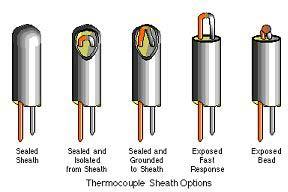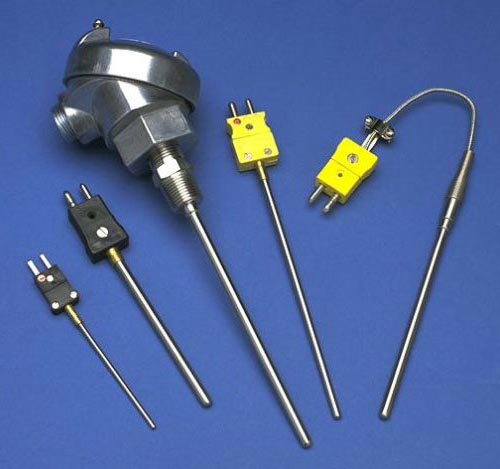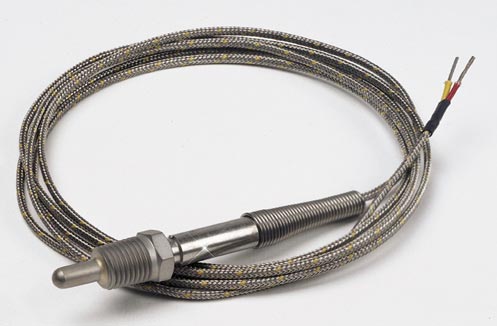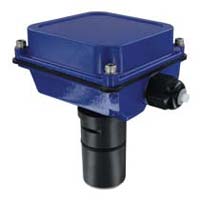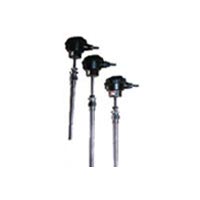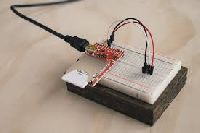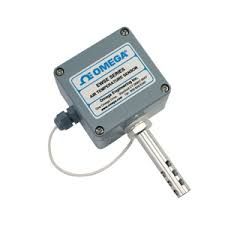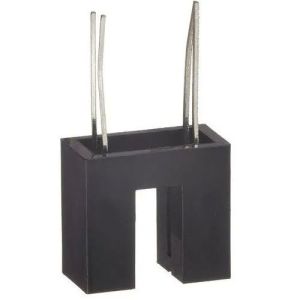Listing ID #977430
Ask for more detail from the seller
Contact SupplierWe deal in wide range of Temperature Sensors. Right from RTD Sensors and Flexible Thermocouple Wire Sensors, we make available all types of Temperature Sensors. We have updated fabrication facility to come up with Temperature Sensors in different technical specifications. All the accessories are specifically tested for resistance to corrosion, moisture and likewise climatic conditions. Also, they comply with ANSI standards. We believe in offering the best value for money and this makes us a sought-after name as Temperature Sensors Manufacturer, Exporter and Supplier from Haryana.
What are the different thermocouple types?
A thermocouple is available in different combinations of metals. The four most common calibrations are J, K, T and E. There are high temperature calibrations R, S, and B. Each calibration has a different temperature range and environment, although the maximum temperature varies with the diameter of the wire used in the thermocouple. Although the thermocouple calibration dictates the temperature range, the maximum range is also limited by the diameter of the thermocouple wire. That is, a very thin thermocouple may not reach the full temperature range.
How to select a thermocouple type?
Because a thermocouple measures in wide temperature ranges and can be relatively rugged, thermocouples are very often used in industry. The following criteria are used in selecting a thermocouple :
How to select a junction type?
Sheathed thermocouple probes are available with one of three junction types; grounded, ungrounded or exposed. At the tip of a grounded junction probe, the thermocouple wires are physically attached to the inside of the probe wall. This results in good heat transfer from the outside, through the probe wall to the thermocouple junction. In an ungrounded probe, the thermocouple junction is detached from the probe wall. Response time is slower than the grounded style, but the ungrounded offers electrical isolation. Thermocouple in the exposed junction style protrudes out of the tip of the sheath and is exposed to the surrounding environment. This type offers the best response time, but is limited in use to dry, non-corrosive and non-pressurized applications.
Types :
A grounded junction is recommended for the measurement of static or flowing corrosive gas and liquid temperatures and for high-pressure applications. The junction of a grounded thermocouple is welded to the protective sheath, giving faster response than the ungrounded junction type.
An ungrounded junction is recommended for measurements in corrosive environments where it is desirable to have the thermocouple electronically isolated from and shielded by the sheath. The welded wire thermocouple is physically insulated from the thermocouple sheath by MgO powder (soft).
An exposed junction is recommended for the measurement of static or flowing non-corrosive gas temperatures where fast response time is required. The junction extends beyond the protective metallic sheath to give accurate fast response. The sheath insulation is sealed where the junction extends to prevent penetration of moisture or gas which could cause errors.
Factors to Consider :
Choosing the correct thermocouple requires that you look at a number of factors. For example, a thermocouple, which is used only periodically, may be less expensive, but it may have a shorter life span and require servicing more often. If the thermocouple is intended to be used for long periods without service, it may be necessary to use a thicker gauge of wire and it may be necessary to use a design engineered for a greater degree of protection. Below are some general guidelines to consider when choosing a thermocouple. If you need more help making a decision our knowledgeable sales staff is available to recommend a design which will best suit your application.
General Guidelines :
| ANSI | Thermocouple Joint | Composition | Thermocouple | EMF |
|---|---|---|---|---|
| positive (+) | negative (-) | |||
| T | Copper | Constantan | -270°C to +400°C | -6.2 to 20.87 mV |
| E | Chromel | Constantan | -270°C to +1000°C | -9.8 to 76.37 mV |
| J | Iron | Constantan | -210°C to +760°C | -8.09 to 69.55 mV |
| K | Chromel | Alumel | -270°C to +1370°C | -6.4 to 54.88 mV |
| R | Pt-13% Rh | Platinum | -50°C to +1760°C | 0.2 to 21.10 mV |
| B | Pt30% Rhodium | Pt 6% Rhodium | 0°C to + 2000°C | 0.0 to 13.82 mV |
| S | Platinum/10% Rhodium | Platinum | -50°C to +1750°C | -0.23 to 18.69 mV |
| (N) | Nicrosil | Nisil | -270°C to 1300°C | -4.34 to 47.51 mV |
